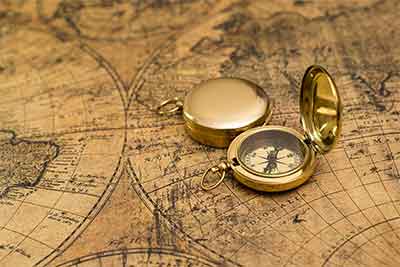Historical Terms (Part - 2)
1. BHANDAGARIKA
- It is the position named to the store-keeper or treasure-keeper.
- It was an administrative position.
- It was in the administration of Republican states during the Pre-Mauryan Age.
- Lichchhavis are said to be
- the oldest republic in the world and hence, started by them.
2. BHERIGHOSHA
- Bherigosha is the beating of drum which is the indication of beginning of a war.
- This has reference to Ashoka’s change of heart after the war of Kalinga, where the battleground looked like the sight of a hell.
- The war caused great suffering to the brahmana priests and Buddhist monks, and this in turn brought upon Ashoka much grief and remorse. He therefore abandoned the policy of physical occupation in favour of one of cultural conquest. In other words, bherighosha was replaced with dhammaghosha.
3. DHAMMAGHOSHA
- Dhammagosha is also the sound of beating of drum. But this sound is different from that of a bherisound. The Dhammagosha sound announces the beginning of a Religious discourse or preaching.
- In the Fourth Major Rock Edict of Ashoka the term Bheri Ghosha which means war drum was replaced by Dhamma Ghosha and King Ashoka attached greatest value to this duty.
4. RAJUKAS
- This was the Land measurer during the Mauryan Empire.
- Ashoka in his administrative policy implemented the Rajukas as the sole agency to execute his plans of reforms. Originally the Rajukas were the officials in charge of measurement of land and settled those if there arose any dispute.
- "Rajukas" were the provincial officials during the Mauryan administration. These officials were engaged in clerical and accounting works. Rajukas who were in rural administration wielded more power and freedom in administration. He had the power to even give capital punishment.
5. SANGITI
- These mean Buddhist Councils in Pali and Sanskrit.
- Buddhist council of collective recitation and rehearsal. The term generally means song, music, concert etc, but has come to signify the general assembly of Buddhist monks in order to settle questions of doctrine and scriptures. The sangitis are of paramount significance in the history of buddhism.
- Since the death of the historical Buddha, Siddhartha Gautama, Buddhist monastic communities ("sangha") have periodically convened to settle doctrinal and disciplinary disputes and to revise and correct the contents of the sutras
Sources
- Old NCERTs class 6-10
- Wisdom library









